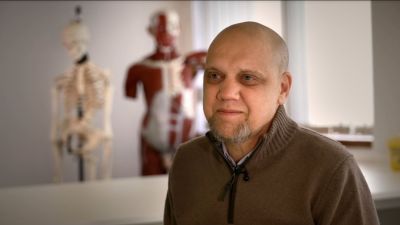Portugal's moral and legal struggle with assisted dying

Laws permitting euthanasia in Northern Europe are increasingly well-established, even commonplace.
In southern Europe much less so.
In any country where the Catholic church has traditionally been strong, there has been resistance to breaking one of the great Catholic taboos on the sanctity of life, which is what makes the imminent legalisation of assisted dying in Portugal so interesting.
This is where we are right now: the Portuguese Parliament has twice passed a law that would permit a terminally ill patient in “physical, psychological and spiritual pain” to request help in ending their suffering.
Twice the country’s President has referred the law to Portugal’s Constitutional Court and twice that court has found elements of the law that it said needed changing.
In a few days the Parliament (with a comfortable government majority) is expected to pass an amended version of the bill.
When it come before the president a third time, few believe that (however much he may not like it) he will block it again.
The new rules will be very tightly drawn, having learnt from the experience in countries like Belgium and the Netherlands that definitions can easily be stretched and extended – the ‘slippery slope’ that opponents of euthanasia repeatedly warn about.
But even so there remains considerable opposition.
MPs like Ricardo Baptista Leite object on principle to anything that he sees as breaching the sanctity of life, but more than that he makes the practical objection that palliative care services in Portugal are simply not good enough.
In other words, if you are not being offered proper pain relief and end-of-life care, you are not really enjoying a free choice if the only way to a pain-free death is through euthanasia.
But we spoke also to Joao Cainé who has been battling an aggressive form of prostate cancer for five years now.
He knows it will kill him - the only issue is when.
And when it does he wants the option – and he makes it clear that he doesn’t know whether he will take that option – to end his life on his own terms.
As a health professional he is under no illusion about what lies ahead, but he wants to have a degree of control. For Joao, the new euthanasia law can’t come soon enough.
Want a quick and expert briefing on the biggest news stories? Listen to our latest podcasts to find out What You Need To Know.
The legislative battle has been a long one, and not all those who fought it have lived to see the conclusion.
Cancer took law professor Laura Santos in 2016, but not before she wrote the book ‘Help Me to Die’ that has inspired the euthanasia movement in Portugal.
Her colleagues and collaborators have continued the fight in her memory, now almost to its conclusion.
They firmly believe that the Parliamentary fight is almost over and that Portugal will have established the legal right to an assisted death before the end of this year.
You can watch On Assignment at 10.55pm on Tuesday 28th March on ITV1.